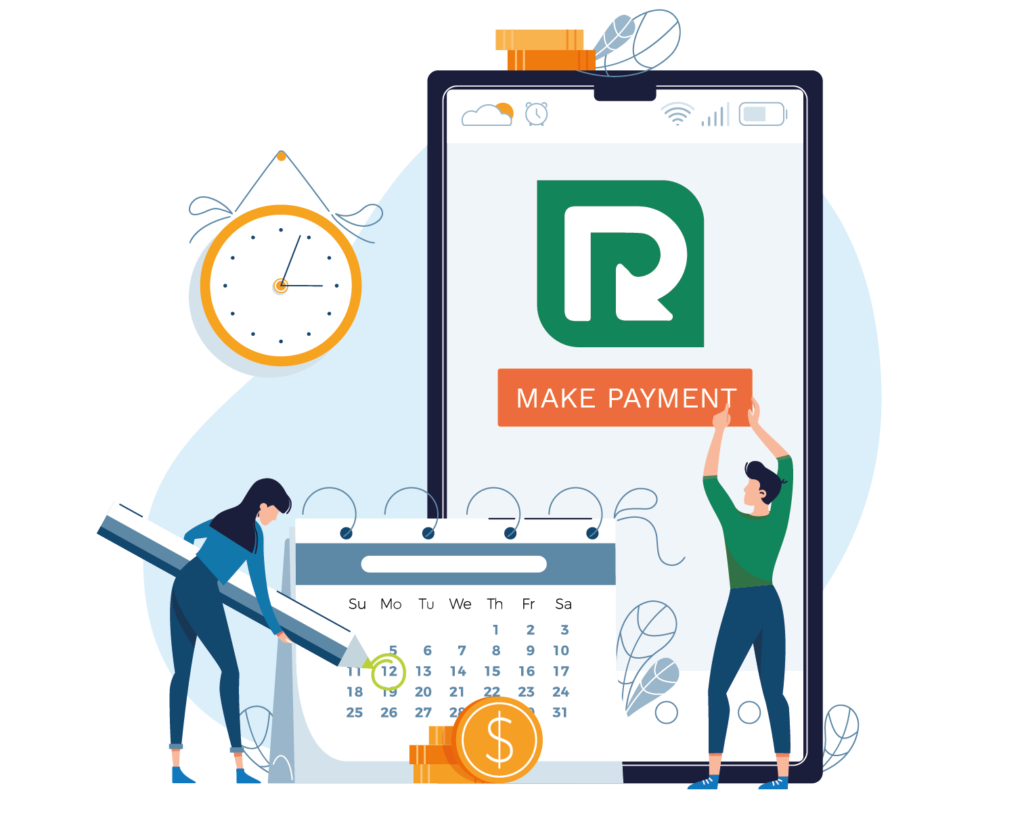The Benefits of Reporting Rent Payments for Property Management Companies
Many renters nowadays are staying in rentals for longer durations, whether they are saving for their own homes or have other reasons. Despite rent being a substantial monthly expense, it historically didn’t contribute to a renter’s credit score. Since around 2014, the scenario shifted when credit bureaus started including verified rent payment data in credit reports, known as rent reporting.
Online rent payment software
Make rent payments painless by letting residents pay their way

Reporting rent payments has become a modern standard in property management. It’s a practice that entails documenting and sharing rental payment data with credit bureaus or other concerned parties.
Engaging in reporting rent payments can substantially benefit property management operations. In this guide, we delve into the top five reporting rent payment benefits for property management companies.
Top 5 benefits of reporting rent payments
Reporting rent payments is a practice that holds advantages not just for tenants, but for landlords and property managers as well. Here’s a closer look at how this system can be beneficial:
1) Improves landlord-tenant relationships
Reporting rent payments can establish a stronger relationship between landlords and tenants. When landlords and property managers provide rent payment reporting, it shows tenants that they care about their credit-related goals. This can add a layer of trust and engagement to the relationship.
Having a strong landlord-tenant relationship is beneficial for property management operations. When tenants have good relations with their landlord, they are more likely to stay longer in the property, which reduces vacancies and the costs associated with finding new tenants. Tenants are also more likely to pay rent on time, maintain the property, and leave positive reviews that can help attract new tenants in the future.
Utilizing rent payment software can streamline the reporting process by ensuring that all transactions are recorded promptly and accurately. This approach saves time and reduces the chance of errors, making the reporting process more reliable for both property managers and tenants.
2) Encourage on-time rent payments
Reporting rent payments regularly can encourage tenants to pay on time. Since both positive and negative payment information is reported on the credit report, late payers are more likely to pay on time if they know their payments are reflected in their credit history.
The use of rent payment software to collect rent online can make the payment process simpler and more convenient for tenants. This convenience, coupled with the awareness of reporting, can significantly improve on-time payment rates.
3) Help residents build a credit history
One of the most significant reporting rent payment benefits is assisting tenants in building their credit history. When tenants make their rental payments on time, they’re rewarded by building their credit history and potentially improving their credit score.
This is a win-win situation for tenants and property managers or landlords. Tenants get to build their credit scores while property managers ensure timely residential or commercial rent payments. This helps maintain a stable income flow for property managers and landlords.
4) Attracts quality tenants
Implementing rent payment reporting can be a magnet for quality tenants. Individuals who value their credit scores and aim to build or maintain them are often attracted to properties where rent payment reporting is in practice. These individuals are usually responsible tenants who are more likely to make on-time payments and take good care of the property.
In contrast, the prospect of rent payment reporting may deter tenants with a history of late or missed payments. This can help deter less desirable applicants from the start. This filtering can result in a community of responsible tenants, allowing property managers to benefit from consistent rent payments and a positive reputation in the market.
5) Access resident payment data
Access to resident payment data allows for a better understanding of the financial behavior of tenants. With accurate rent payment data, property managers can quickly identify which tenants are consistent with their payments and which are prone to delays. This kind of information is critical in making informed decisions regarding lease renewals, enforcing late payment fees, or even providing references for tenants in the future.
Having access to organized resident payment data simplifies the financial management aspect of property management. It ensures that all transactions are accurately recorded and easily retrievable. With such data, property managers can easily respond to financial inquiries and resolve disputes, demonstrating a well-managed and trustworthy operation.
FAQs about reporting rent payments
Cut Through Data Chaos with MRI Agora Insights
Today’s commercial property owners and operators are using more technology systems than ever before, yet challenges still exist around data visibility, integrations, and automation. It’s no secret that the real estate industry generates vast quantiti…
